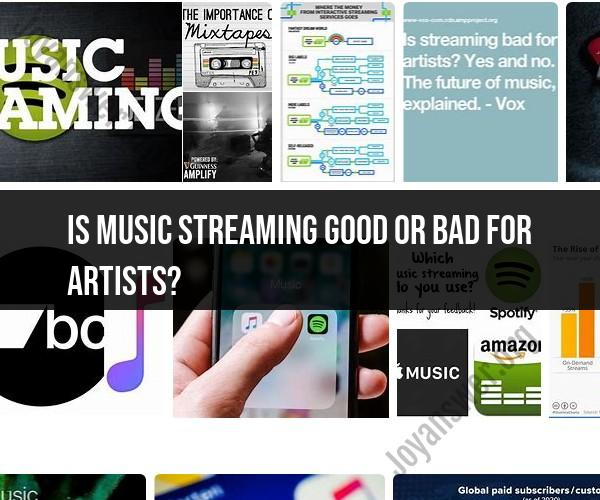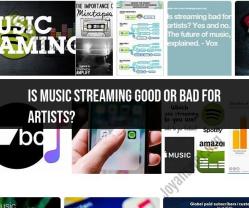Is music streaming good or bad for artists?
The impact of music streaming on artists and their income is a topic of ongoing debate, and opinions on whether it is good or bad vary widely. Here are some key points to consider:
Positive Aspects of Music Streaming for Artists:
Exposure and Discoverability: Music streaming platforms provide artists with a global audience, allowing them to reach a vast and diverse fan base. This exposure can be especially beneficial for independent and emerging artists who may not have had access to traditional distribution channels.
Access to Revenue Streams: While streaming royalties per play are generally low, the sheer volume of streams can generate significant income for popular artists. Additionally, artists can earn money through other revenue streams such as concert ticket sales, merchandise, and endorsements, all of which can be boosted by the visibility gained through streaming.
Convenience and Accessibility: Music streaming platforms make it easy for fans to access an artist's entire catalog instantly. This convenience can lead to increased consumption and, in turn, greater royalty earnings.
Data and Analytics: Streaming platforms provide artists with valuable data and analytics on their listeners, helping them understand their audience and tailor their marketing and touring strategies accordingly.
Challenges and Concerns for Artists:
Low Per-Stream Royalties: Artists often receive very low royalties per stream, which can make it difficult to earn a substantial income solely from streaming. This disproportionately affects smaller and independent artists who may rely more heavily on streaming income.
Income Inequality: A small number of superstar artists dominate streaming platforms and earn the majority of streaming revenue, leaving less for other musicians. This income inequality is a concern within the music industry.
Monetary Thresholds: Some streaming platforms only pay artists once they reach a minimum earnings threshold, which can be challenging for emerging artists or those with smaller fan bases.
Dependency on Streaming: The shift to streaming has reduced revenue from physical sales and digital downloads, forcing many artists to depend heavily on streaming income. This reliance can be risky if streaming income declines or if artists have limited control over how their music is monetized.
Loss of Album Sales: With the rise of streaming, the concept of purchasing entire albums has declined, impacting artists who previously relied on album sales as a primary source of income.
In conclusion, the impact of music streaming on artists and their income is a complex and mixed bag. It can be beneficial in terms of exposure and revenue diversification, especially for well-established and popular artists. However, it poses challenges related to low per-stream royalties, income inequality, and dependency on streaming income, which disproportionately affect smaller and emerging artists. To address these challenges, many artists and industry stakeholders are advocating for more equitable compensation models and better revenue-sharing arrangements within the music streaming ecosystem.


